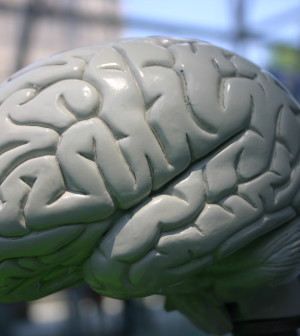- Could Your Grocery Store Meat Be Causing Recurring UTIs?
- Are You Making This Expensive Thermostat Error This Winter?
- Recognizing the Signs of Hypothyroidism
- 10 Strategies to Overcome Insomnia
- Could Artificial Sweeteners Be Aging the Brain Faster?
- Techniques for Soothing Your Nervous System
- Does the Water in Your House Smell Funny? Here’s Why
- Can a Daily Dose of Apple Cider Vinegar Actually Aid Weight Loss?
- 6 Health Beverages That Can Actually Spike Your Blood Sugar
- Treatment Options for Social Anxiety Disorder
People With OCD May Have Higher Odds for Schizophrenia: Study


People with obsessive-compulsive disorder (OCD) may be at higher risk for schizophrenia, a new study suggests.
Still, the findings shouldn’t cause undue worry in people with OCD, one expert said.
“In the general population, about 1 percent of people are diagnosed with schizophrenia — a proportion that jumps to 2 percent among those who already have a diagnosis of OCD,” explained Dr. Alan Manevitz, who was not involved in the study but reviewed its findings.
“But even with this doubled risk, it would be alarmist to suggest that a person with OCD has a high chance of developing schizophrenia,” said Manevitz, a clinical psychiatrist at Lenox Hill Hospital in New York City. “In fact, that risk remains small.”
While OCD and schizophrenia are two distinct mental disorders, prior research has suggested a link between the two conditions.
In the new study, Danish researchers led by Sandra Meier of Aarhus University tracked data from 3 million people who were born between 1955 and 2006. All of the participants were followed from 1995 through 2012.
Of the more than 16,200 people who developed schizophrenia, about 3 percent of them had a prior diagnosis of OCD, the researchers report online Sept. 3 in JAMA Psychiatry.
The data suggests that a prior diagnosis of OCD is associated with an increased risk of schizophrenia later in life. The researchers also found that children of parents diagnosed with OCD were at increased risk for schizophrenia.
The findings indicate some overlap between OCD and schizophrenia, but do not suggest that the disorders should be combined into one diagnosis, Meier’s team said.
“Further research is needed to disentangle which genetic and environmental risk factors are truly common to OCD and schizophrenia,” the study authors concluded.
“While this study confirms the small but perhaps significant increase in the category of patients suffering from both OCD and schizophrenia, it doesn’t tell us why,” Manevitz said. “I agree with the study authors that much more research into this field is warranted. If scientists can find overlapping biological or genetic markers common to the two conditions, such advancements could lead to new and better treatments for both.”
Another expert had a different take on the findings.
“At least some of the association may have been a result of misdiagnosis in patients before they developed more specific symptoms of schizophrenia,” said Dr. Aaron Pinkhasov, chairman of the department of behavioral health at Winthrop University Hospital in Mineola, N.Y.
“Notably, the study only looks at patients who have come in contact with a psychiatric hospital,” he said. “As the majority of mild and moderate OCD patients are treated by general practitioners in an outpatient setting, it makes it difficult to apply these findings to all patients suffering from OCD. Hence, the risk may in fact be somewhat overestimated.”
More information
Find out more about schizophrenia at the U.S. National Institute of Mental Health.
Source: HealthDay
Copyright © 2026 HealthDay. All rights reserved.










